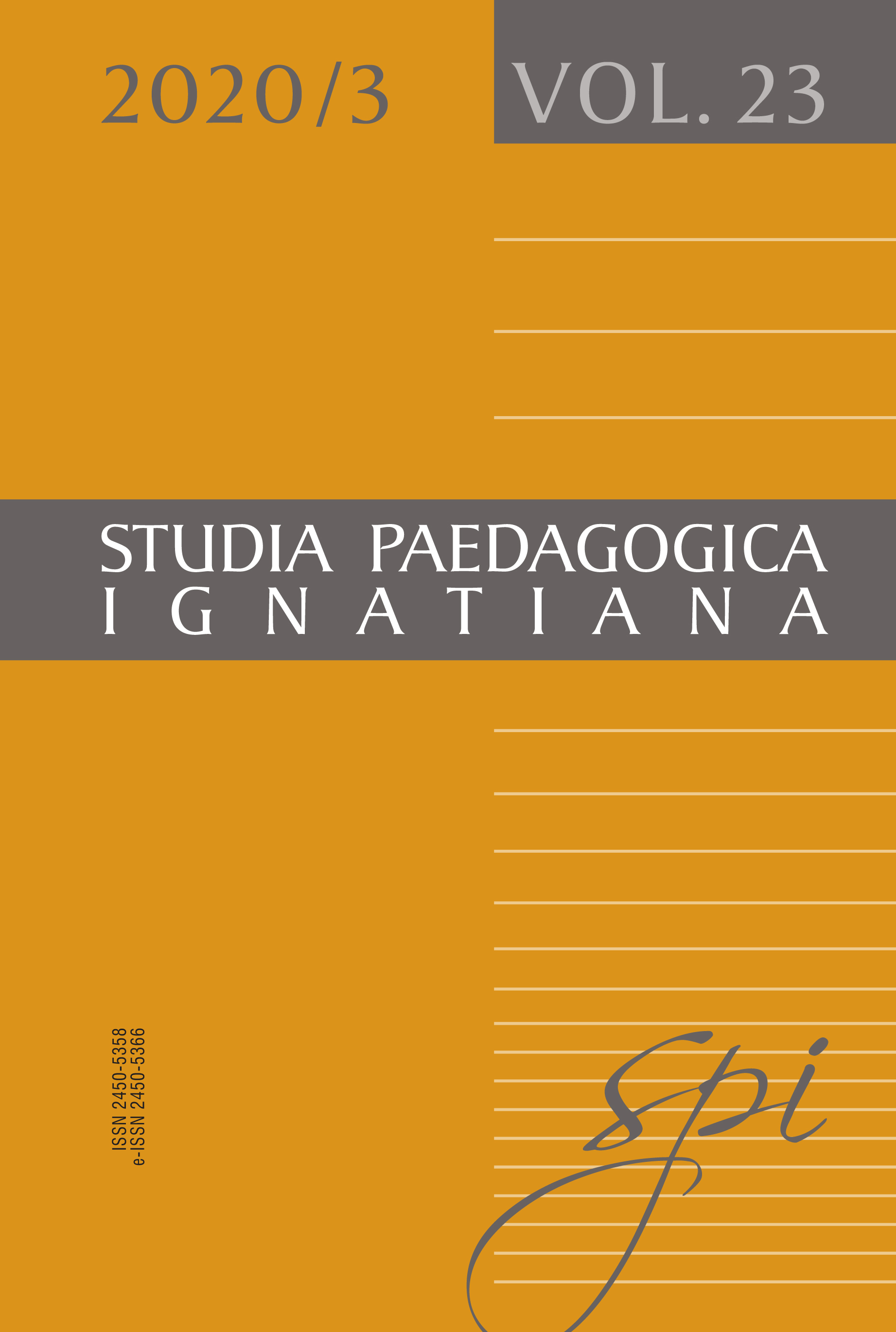Marital Selection in Intercultural Marriages
DOI:
https://doi.org/10.12775/SPI.2020.3.008Keywords
marriage, matrimonial choice, intercultural marriage, interculturalism, intercultural relations, consistent choice, eligibility fieldAbstract
Studies on the patterns of marital selection began in the 1920s, and since then researchers have identified a set of variables that should be taken into account in marriage selection research. In this study the following variables are considered: age, nationality, race, social class, environmental background, attitude to faith, religion, attitude to religious practices, education, current employment status, previous marital status, number of marriages, number of children from previous marriages, and financial situation before the present marriage. One hundred and twelve Polish women who married foreigners from non-European cultures took part in the study. Their husbands were representatives of African, Asian and Australian countries; none of them came from Europe or the Americas.
The aim of the study is to examine marital selection among intercultural marriages and to provide new knowledge on the subject. In connection with the adopted topic, the purpose of the research and the analysis of the literature on the subject, the main problem of the research was formulated as follows: what are the similarities and differences in marital selection in intercultural marriages?
The study revealed that, in most cases, marital selection among the couples who participated in the study followed a similar social biography: the spouses were of a similar age (79.5%) and shared race (90.1%), social class (74.1%), environmental background (61.6%), education (56.2%), attitude to faith (92.8%), and their financial situation before the present marriage (65.2%). The results obtained confirmed Farle’s theory, in which he distinguished three main factors influencing the frequency of intercultural marriages: military service, higher education and place of residence. The analysis of the data indicates that the majority of the respondents lived in big cities (57.1%), and higher education was the most common level of education among both the respondents (60.7%) and their husbands (41.1%).
References
Becker G.S. (1991). A Treatise on the Family, London–Cambridge (MA): Harvard University Press.
Blau P.M., Shwartz J.E. (1997). Crosscutting Social Circles: Testing a Macrostructural Theory of Intergroup Relations, London–New Brunswick (NJ): Transactions Publishers.
Brzozowska A. (2019). Dobór małżeński i integracja imigrantów w małżeństwach mieszanych – stan badań. CRM Working Paper 81/139, http://www.migracje.uw.edu.pl/wp-content/uploads/2016/06/WP811392.pdf [access: 11.01.2019].
Davis K. (1941). “Intermarriage in Caste Societies,” American Anthropologist, vol. 43, no. 3, pp. 376–395.
Farley R. (1998). “Racial Issues: Recent Trends in Residential Patterns and Intermarriage,” in N. Smelser, J.C. Alexander (eds.), Diversity and Its Discontents: Cultural Conflict and Common Ground in Contemporary American Society, Princeton (NJ): Princeton University Press, pp. 85–128.
Kaszycka K.A., Strzałko J. (2003). “Race – Still an Issue for Physical Anthropology? Results of Polish Studies Seen in the Light of the U.S. Findings,” American Anthropologist, vol. 105, no. 1, pp. 116–124.
Merton R.K. (1941). “Intermarriage and the Social Structure: Fact and Theory,” Psychiatry, vol. 4, no. 3, pp. 361–374.
Sowa-Behtane E. (2016). Rodziny wielokulturowe, Kraków: Akademia Ignatianum; Wydawnictwo WAM.
Warzywoda-Kruszyńska W. (1974). Małżeństwo a struktura społeczna, Wrocław: Zakład Narodowy im. Ossolińskich.
Winch R.F. (1967). “Another Look at the Theory of Complementary Needs in Mate-Selection,” Journal of Marriage and Family, vol. 29, no. 4, pp. 756–762.
Downloads
Published
How to Cite
Issue
Section
License
By submitting an article, the author declares that:
they are the author of the article (hereinafter referred to as the Work) and:
- is entitled to exclusive and unlimited copyright to the Work,
- is entitled to dispose of the copyrights to the Work.
The Author grants the Jesuit University Ignatianum in Cracow a free, non-exclusive, territorially unlimited license to use the Work in the following fields of exploitation:
- publishing the Work in paper, digital or magnetic form;
- multiplying the work by any method, without limiting the number of editions or copies;
- distribution of the work and its copies in any form, including marketing, sales, lending, and lease;
- placing the work in a computer memory;
- distribution of the work in information networks, including the Internet;
- public performance, exhibition, display, reproduction, broadcasting and re-broadcasting, as well as making the Work available to the public in such a manner that everyone could have access to it at a time and place chosen by themselves;
- within the scope of dependent rights to the Work, covering, in particular, the right to make necessary changes to the Work, resulting from editorial and methodical preparation, as well as to make translations of the Work into other languages.
The license right shall be transferred the moment of transfer of the Work to the Jesuit University Ignatianum in Cracow. The Jesuit University Ignatianum in Cracow is entitled to grant sub-licenses to the Work in terms of the right granted. The license shall be limited in time for a period of 15 years from the date it is granted.
Stats
Number of views and downloads: 3511
Number of citations: 0



